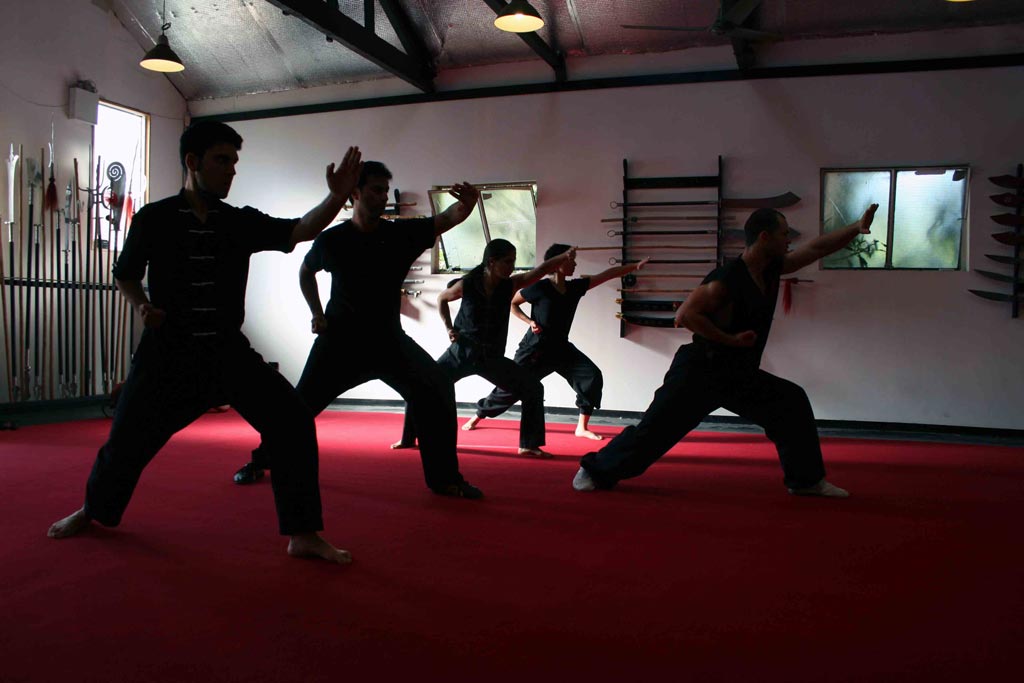Introduction: Kung Fu as a Path to Early Development
In an age where children are often drawn to screens and digital distractions, physical and mental growth can suffer. One proven solution that’s gaining traction among parents is enrolling their children in Kung Fu Leichhardt. These classes blend traditional martial arts values with modern developmental needs, helping children grow stronger, more focused, and emotionally balanced.
This article will explore how Kung Fu benefits children physically, mentally, and socially—while also helping parents choose the right program for their child’s unique needs.
Physical Development Through Kung Fu
Strength, Balance, and Flexibility
The foundation of Kung Fu revolves around body control and movement. Techniques like kicks, punches, stances, and footwork enhance children’s physical capabilities over time. This not only boosts muscle strength but also significantly improves posture and joint flexibility.
Long-tail keywords included naturally:
- kung fu to enhance child body coordination
- martial arts training for kids with high energy
- improving posture through kids’ martial arts
Better Motor Skills and Reflexes
Children participating in Kung Fu develop quicker reflexes and better motor coordination. These abilities support them in other areas of life, including sports, dance, and general physical activity. Movements practiced repeatedly help children refine hand-eye coordination and spatial awareness.
Mental and Emotional Growth
Focus, Discipline, and Responsibility
Kung Fu Classes For Kids are structured with clear goals and routines, which cultivate discipline and improve attention span. Whether it’s remembering forms (katas) or staying still during meditation, children develop habits that support better academic performance and personal responsibility.
Confidence and Emotional Resilience
Each achievement, whether earning a new sash or mastering a challenging move, builds confidence. For introverted or anxious children, the progress they make in a supportive environment teaches them to overcome challenges and regulate their emotions better.
Long-tail keywords integrated:
- martial arts to build child self-confidence
- emotional growth through kung fu training
- discipline and focus in kids’ kung fu programs
Social Skills and Peer Interaction
Learning Respect and Teamwork
Kung Fu instills respect—for instructors, peers, and oneself. Children practice bowing, taking turns, and working in pairs, reinforcing mutual understanding and manners. Group activities and partner drills also build cooperation and camaraderie.
Dealing with Conflict Peacefully
Contrary to common misconceptions, Kung Fu doesn’t teach children to fight. It teaches them not to fight. Children are trained to use their skills only in self-defense and to walk away from unnecessary conflict.
Choosing the Right Kung Fu Class
What to Look for in a Kids’ Program
When searching for Kung Fu Classes For Kids, parents should consider several factors to ensure a safe, engaging, and age-appropriate experience:
- Certified instructors with child-training experience
- A structured, level-based curriculum
- Group sizes that allow individual attention
- Positive reinforcement teaching style
Relevant long-tail keyword phrases:
- how to choose kids martial arts classes
- child-friendly kung fu instructors near me
- safe and structured kung fu for beginners
The Role of Kung Fu in School Readiness
Memory, Pattern Recognition, and Sequencing
Kung Fu training includes learning complex movement patterns that enhance a child’s memory, cognitive flexibility, and pattern recognition—skills that translate well into subjects like math and reading.
Self-Regulation and Stress Management
Meditative breathing, calm focus, and repetitive movements in Kung Fu can act as stress-relief techniques. Children learn how to manage frustration, control impulsive behavior, and stay calm under pressure.
Real-Life Benefits Beyond the Dojo
Children who attend Kung Fu classes regularly often experience:
- Increased self-reliance when facing difficult tasks
- Healthier habits such as staying active and eating mindfully
- Improved social bonds through shared learning and mutual respect
- A stronger moral compass, as many traditional Kung Fu systems teach values like honesty, courage, and patience
FAQs About Kung Fu Classes For Kids
Q1: What age is best for a child to start Kung Fu?
A: Most programs start at age 4–5 with basic movements and discipline. Older children can begin at any age and progress quickly.
Q2: Will Kung Fu make my child aggressive?
A: No. Kung Fu teaches control, respect, and non-violence. Children often become calmer and more respectful through consistent training.
Q3: How often should my child attend Kung Fu classes?
A: Ideally 2–3 times per week for consistent progress. Many programs offer flexible schedules for school-going kids.
Q4: Can Kung Fu help hyperactive or shy kids?
A: Yes. Kung Fu gives hyperactive children a structured outlet for energy and helps shy children build confidence through achievement.
Q5: What equipment is needed for kids to start Kung Fu?
A: Comfortable clothing is fine to begin with. Once enrolled, most schools provide or recommend a uniform and protective gear if needed.
Conclusion: Kung Fu Builds Stronger, Smarter Kids
Kung Fu Classes For Kids are far more than martial arts—they’re a full-body and mind development system. With roots in tradition and a focus on modern needs, Kung Fu helps children thrive physically, mentally, and socially. It instills lifelong habits of discipline, self-control, and resilience.
If you’re seeking an enriching extracurricular activity for your child, Kung Fu offers more than just exercise—it offers a foundation for life.

